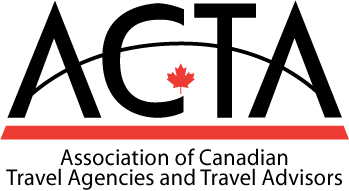Carbon Tax To Hike Air Fares
NOTE: In 2014 ACTA joined the Ontario Coalition for a Competitive Ontario to speak out on the dramatic rise in the aviation fuel tax. Comments were submitted to the Hon. Eric Hoskins (MPP, St. Paul’s) Minister of Economic Development, Trade and Employment where we made good progress stating our position which was to alleviate the fuel tax burden and that any additional tax burden to the airlines is a blow to the competitiveness of the industry . ACTA will continue to stand with our airline partners to support their need to remain competitive. These taxes would ultimately mean an increase in the cost to the consumer.
RELATED STORY
Blacklocks.ca, Staff
Air fares will rise with a national carbon tax, says the Air Transport Association of Canada. The Association yesterday told the Commons finance committee the levy, to be introduced in 2018, will also drive business to tax-free jurisdictions in the United States.
“It’s another blow to the competitiveness of the industry,” said John McKenna, CEO; “In the competitive world of aviation, this is totally unreasonable.”
The tax by 2022 would add 13¢ to the cost of a litre of jet fuel, by Environment Canada’s estimate. Airlines are currently exempt from local carbon taxes in British Columbia and Alberta.
“With this federal carbon tax – even though the B.C. carbon tax is exempted – your industry would still have to pay, is that not correct?” asked Conservative MP Dan Albas (Central Okanagan-Similkameen, B.C.). “Jet fuel is included,” replied McKenna. “Federal tax would apply if the provinces don’t have a tax already.”
McKenna said airlines currently pay $150 million a year in federal excise taxes on fuel. “If you look at the price of a ticket today, the flight part hasn’t changed in 20 years,” said McKenna. “All the other charges have.”
“By 2022, for a typical round trip between two cities in Canada, let’s say from Ottawa to Winnipeg, we’re talking about a $3,000 increase in the cost of fuel for a typical 737,” said McKenna. “Clearly that will trickle down to the passengers.”
“We are in fact going to be pushing industry down south, is that not correct?” asked MP Albas. “Yes,” replied McKenna.
The National Airlines Council in earlier testimony at the Senate energy committee asked for an exemption from the carbon tax. Railways, steelmakers, refiners, food processors and other industries have sought similar exemptions or rebates.
“The government has presented no evidence a carbon tax on aviation fuel would reduce the carbon footprint of aviation in Canada,” Massimo Bergamini, CEO of the Airlines Council, said in earlier remarks. “The adoption of a national carbon tax on jet fuel would not only make us less competitive, but would increase costs on travelers while providing no demonstrable environmental benefit."
Cabinet will mandate a tax of $10 per tonne of carbon emissions on provinces in 2018, rising by $10 increments to $50 per tonne by 2022. The tax at its highest rate will also add 8¢ to the cost of a litre for propane, 12¢ to the price of gasoline, 14¢ for diesel, 16¢ for home heating oil and 10¢ more per cubic metre of natural gas, according to an Environment Canada Technical Paper On The Federal Carbon Pricing Backstop.
The federal treasury collected $5.6 billion in energy taxes last year, and another $5.9 billion in excise taxes and duties.
